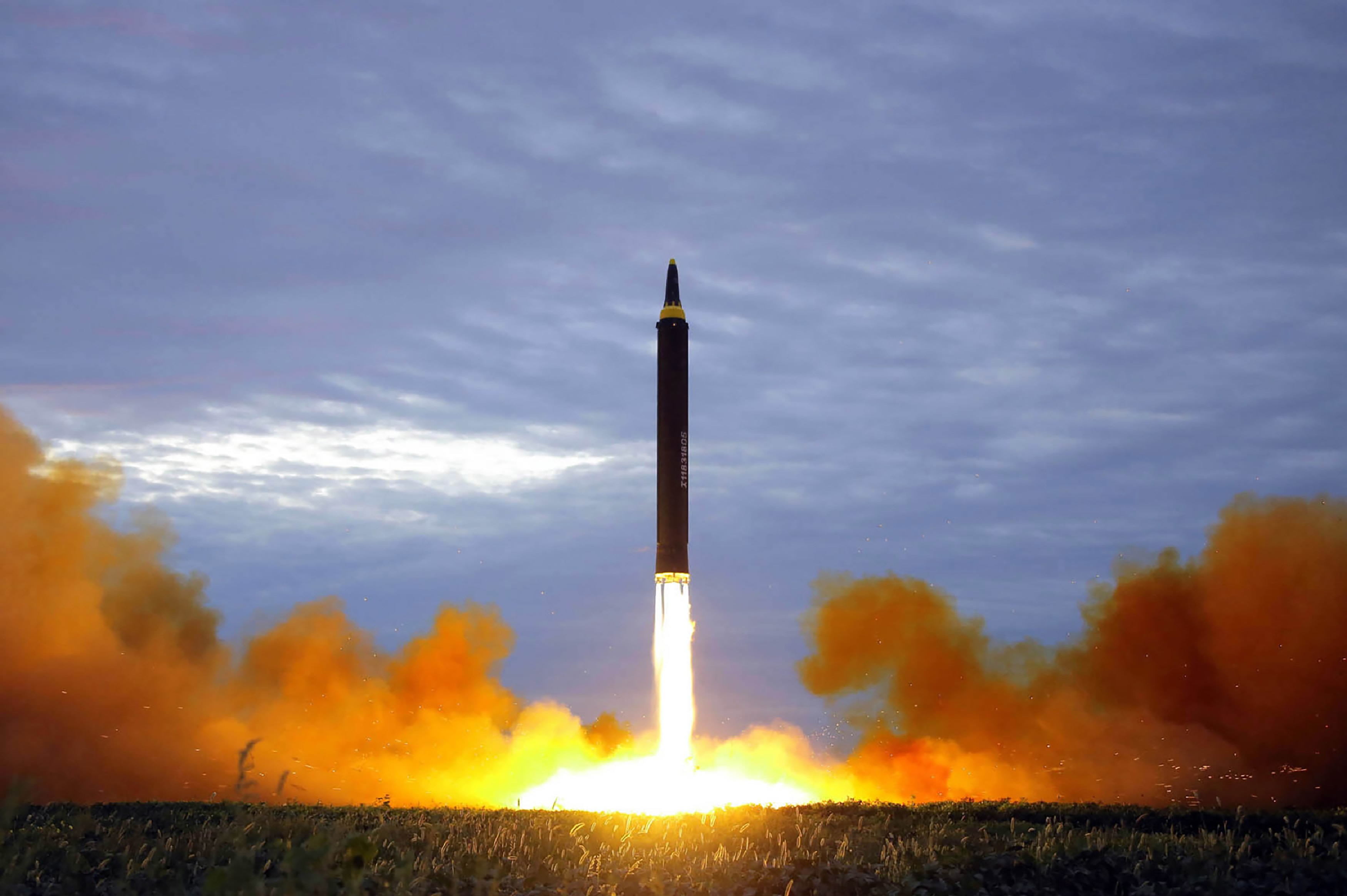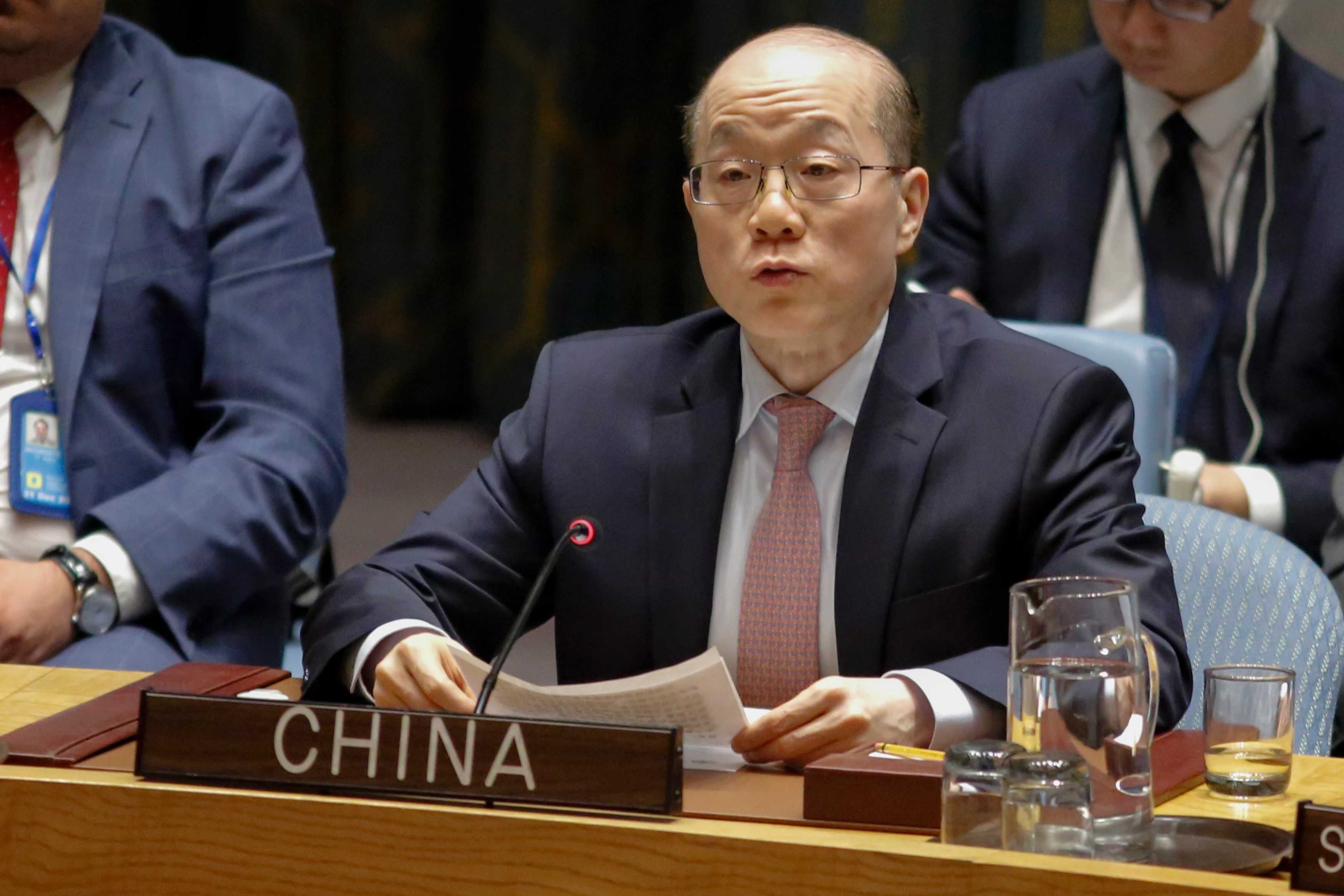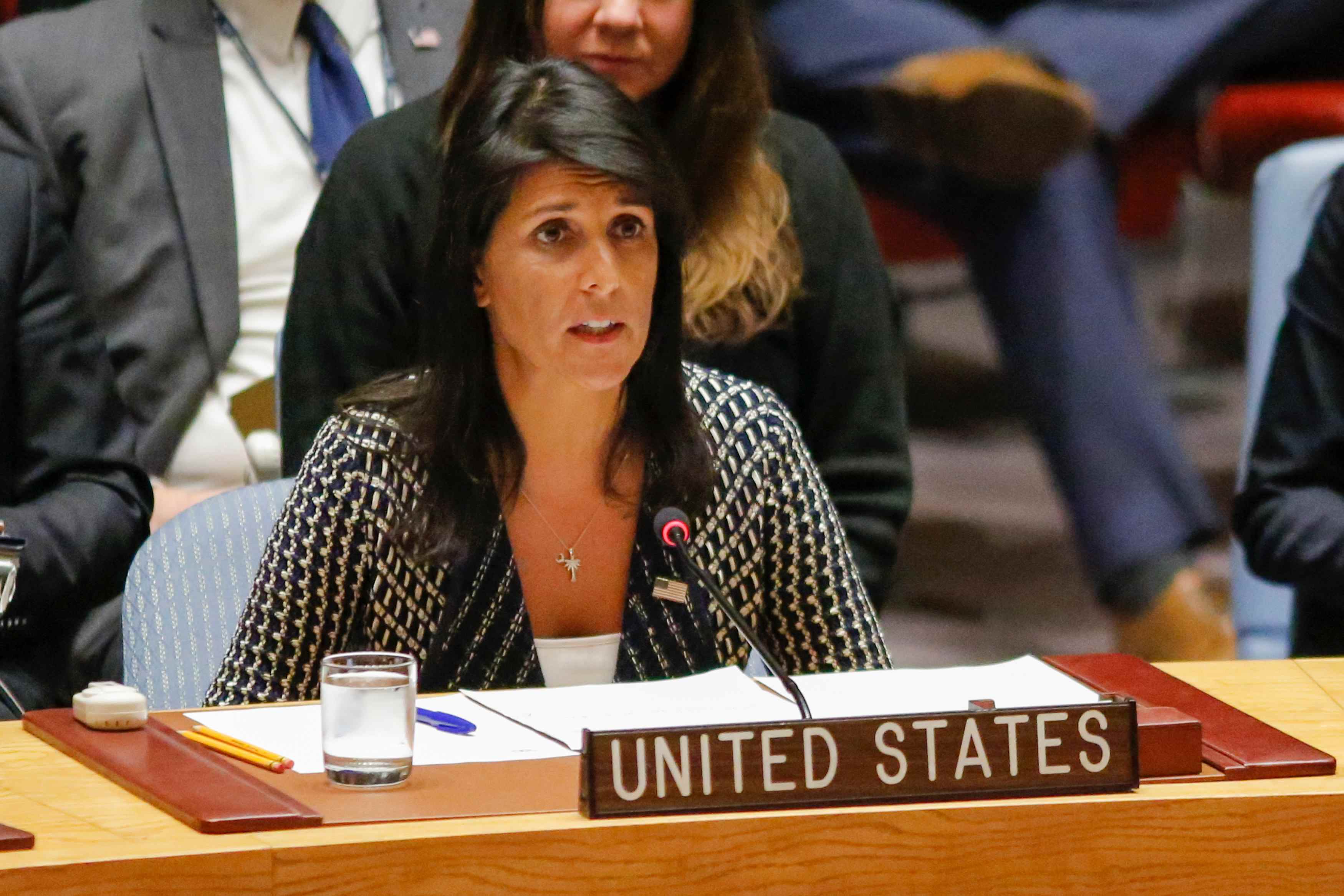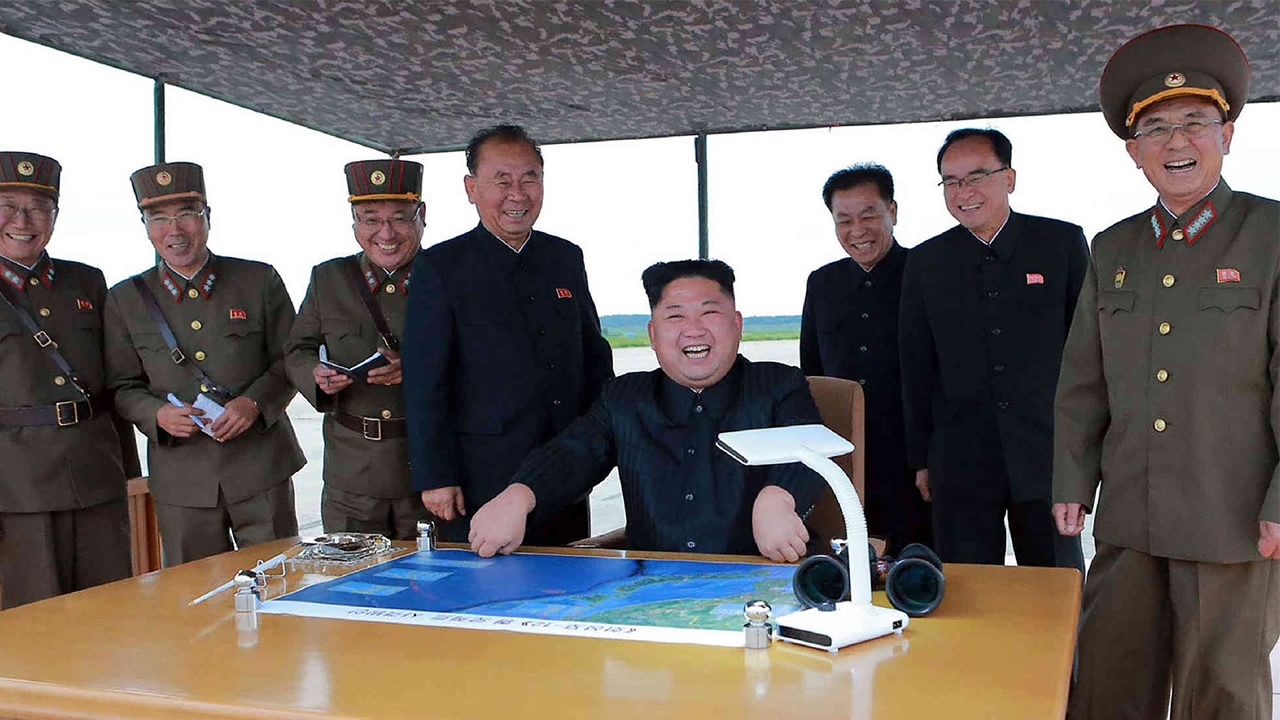Kim Jong Un, leader of the Democratic People's Republic of Korea (DPRK), has promised more missile flights over Japan, insisting the missile launch this time was a mere "curtain-raiser," in the face of UN condemnation and US warnings of severe repercussions.
The official Korean Central News Agency (KCNA) cited Kim as saying that "more ballistic rocket launching drills with the Pacific as a target in the future" were necessary.
Tuesday's launch of a Hwasong-12 intermediate-range missile (IRBM) was a "meaningful prelude to containing Guam, advanced base of invasion," he said, and a "curtain-raiser" for the DPRK's "resolute countermeasures" against ongoing US-South Korean military exercises which the DPRK regards as a rehearsal for invasion.

This picture from Korean Central News Agency (KCNA) taken on August 29, 2017 and released on August 30, 2017 shows DPRK's intermediate-range strategic ballistic rocket Hwasong-12 lifting off from the launching pad at an undisclosed location near Pyongyang. /AFP Photo
This picture from Korean Central News Agency (KCNA) taken on August 29, 2017 and released on August 30, 2017 shows DPRK's intermediate-range strategic ballistic rocket Hwasong-12 lifting off from the launching pad at an undisclosed location near Pyongyang. /AFP Photo
Wednesday's statement was the first time the DPRK has acknowledged sending a missile over Japan's main islands. Two of its rockets previously did so, in 1998 and 2009, but on both occasions it claimed they were space launch vehicles.
KCNA said the launch was timed to mark the 107th anniversary of the "disgraceful" Japan-Korea treaty of 1910, under which Tokyo colonized the Korean Peninsula.
It ushered in a period of oppressive rule that only ended with Japan's defeat in the Second World War and is resented by Koreans on both sides of the divided peninsula, complicating the relationship between Tokyo and Seoul – both of them US allies.
The UN Security Council, which has already imposed seven sets of sanctions on Pyongyang, said in a unanimous statement the DPRK's "outrageous" actions "are not just a threat to the region, but to all UN member states."

Chinese Ambassador to the United Nations, Liu Jieyi, speaks at a UN Security Council emergency meeting over DPRK's latest missile launch on August 29, 2017 at UN Headquarters in New York. /AFP Photo
Chinese Ambassador to the United Nations, Liu Jieyi, speaks at a UN Security Council emergency meeting over DPRK's latest missile launch on August 29, 2017 at UN Headquarters in New York. /AFP Photo
China's UN Ambassador Liu Jieyi called on all parties to exercise restraint and "avoid mutually provocative actions that might exacerbate the regional situation." He reiterated opposition to any "chaos or war" on the Korean Peninsula.
US ambassador Nikki Haley warned at the meeting that "enough is enough" and that tough action had to be taken.
"It's unacceptable," Haley said. "They have violated every single UN Security Council resolution that we've had, and so I think something serious has to happen."

United States Ambassador to the United Nations Nikki Haley speaks at the UN Security Council emergency meeting over DPRK's latest missile launch on August 29, 2017 at UN Headquarters in New York. /AFP Photo
United States Ambassador to the United Nations Nikki Haley speaks at the UN Security Council emergency meeting over DPRK's latest missile launch on August 29, 2017 at UN Headquarters in New York. /AFP Photo
Republic of Korea (ROK) President Moon Jae-in and Japanese Prime Minister Shinzo Abe had a phone call on Wednesday and agreed to raise the pressure on the DPRK to an "extreme" level to induce Pyongyang to come to a dialogue table.
Moon and Abe also agreed to push for new UN Security Council sanctions against the DPRK and to make efforts towards cooperation from China and Russia during the course, Moon's spokesman Park Soo-hyun told a press briefing.
Source(s): AFP
,Xinhua News Agency





